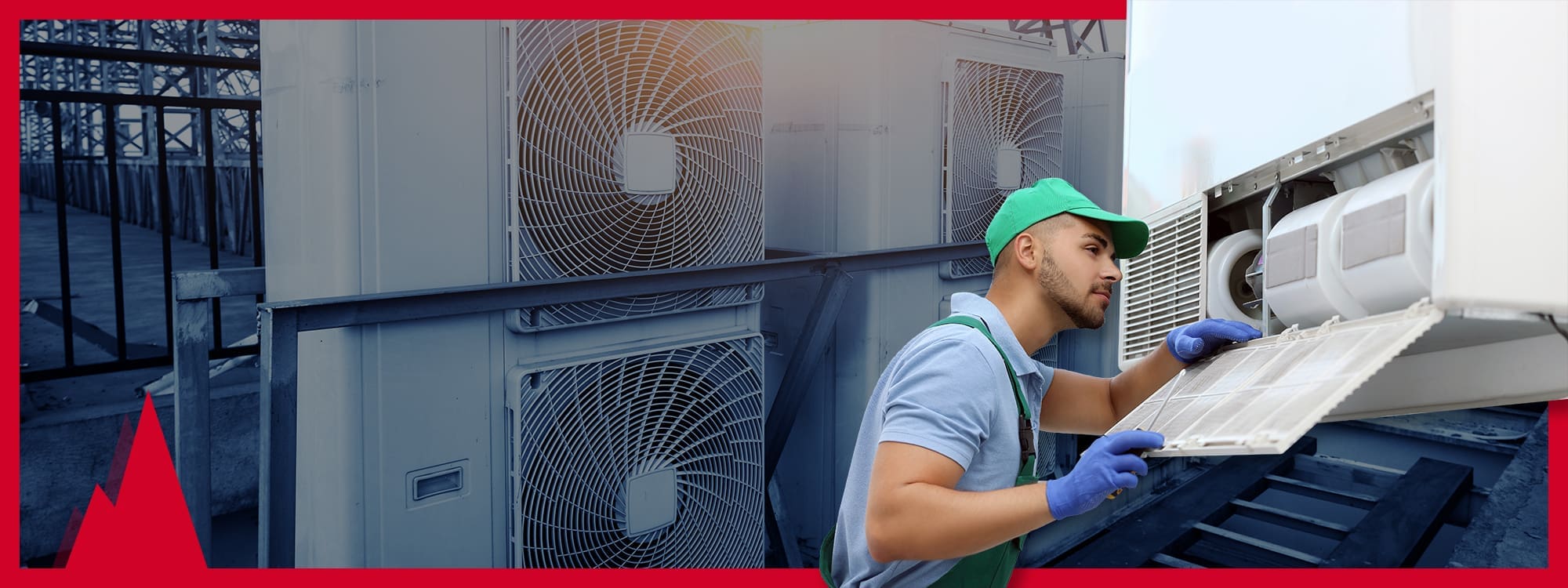How would you like to work at a job where a chief priority is ensuring that people feel comfortable in their home, school, place of work, or any other location, for that matter? That’s what you can expect when you pursue a career as an HVAC technician.
Read on for details about what you can expect to do on the job as an HVAC professional and the benefits of a career in this industry
What Are the Responsibilities of an HVAC Technician?
The term “HVAC” stands for heating, ventilation, and air conditioning, which means you will work with equipment that keeps people cool in the summer and warm during winter.
HVAC systems not only keep people feeling comfortable all year round, but they also promote health, especially for people who are sensitive to extremes of hot or cold temperatures. The filter system that purifies air moving through the HVAC system can be essential for individuals with allergies or more severe respiratory health issues.
Your main responsibilities will involve installing new HVAC systems, inspecting equipment, providing regular maintenance, and making repairs. Being able to quickly troubleshoot air conditioning and heating equipment will come naturally to you after you have finished your training through Summit College.
The duties of an HVAC professional involve understanding blueprints and the technical specifications of the equipment. Once the customer has selected a particular brand and model and you have sized the equipment to their building, you’ll be ready to begin.
Not only do you prepare the HVAC equipment for assembly and then installation, you will also need to do extra work. For example, you may need to put in a new thermostat to control the heating and cooling. Or, you will advise customers about filters to help keep the air cleaner.
During installation, you’ll inspect and test the connections after connecting the fuel lines. And for follow-up visits, you’ll do more of these inspections during routine maintenance appointments.
After training, you will know how to properly size equipment for a home or commercial building. If the system is too small, it won’t be able to adequately cool or heat the building. If the system is too big, it will cycle on and off too frequently, causing premature breakdowns as well as leading to higher utility bills.
HVAC Technician with a Regular Work Schedule or Providing Emergency Services on Demand
You may find yourself working a standard 9-5 job, with predictable hours. Or, if you are more flexible, you may forge a career in after-hours work for a company that provides emergency services 24/7.
When the heat goes down in the middle of a bitterly cold night, the customers can’t wait, and your services will be in high demand. And companies that have a malfunctioning air conditioning system may be forced to close down until you arrive and fix their equipment.
Benefits of an HVAC Career in California
Before you begin your studies to become an HVAC technician, it’s useful to learn more about the benefits of embarking on this career path.
According to the latest statistics from the U.S. Bureau of Labor Statistics, the number of jobs is approximately 380,400. As for the job outlook, the BLS projects an additional 19,000 positions will open up between 2020-2030.
If you’re a people person, you’ll enjoy getting out in the field every day, where your job may take you to a factory, a school, an office building, a house, or an apartment. Sometimes the working environment will be cold or hot if there is no HVAC equipment or if the equipment is not currently working.
Breaking Into the HVAC Business
After you have undergone training and are licensed and certified, you can start to pursue a career as an HVAC technician. With on-the-job training, you can begin in an entry-level position. Opportunities include being an HVAC technician, assistant, maintenance technician, or installer. Beginners also find work as a refrigeration systems mechanic.
Mid-level job options include being a manager over the maintenance department or working as an HVAC controls technician.
As your career progresses, you may become a controls system engineer, a mechanical engineer, or work as a director of services for a large HVAC business. There is plenty of variety in these different job types, so you’re sure to find work that interests you.
Start a Fulfilling Career by Enrolling in Summit College’s HVAC Program Today
As long as people spend time inside buildings, it’s safe to say there will be ongoing work for talented individuals who have been trained in HVAC systems.
The industry needs trained, licensed and certified HVAC technicians for a wide range of tasks. One day you may be consulting with a business owner about options for a new system to install. The next day, you could be focusing on routine maintenance or repairs for homeowners or business owners in California.
To learn more about pursuing a career as an HVAC technician, take a look at Summit College’s HVAC program. You can apply online or arrange for a campus tour. For details, please contact Summit College today.


